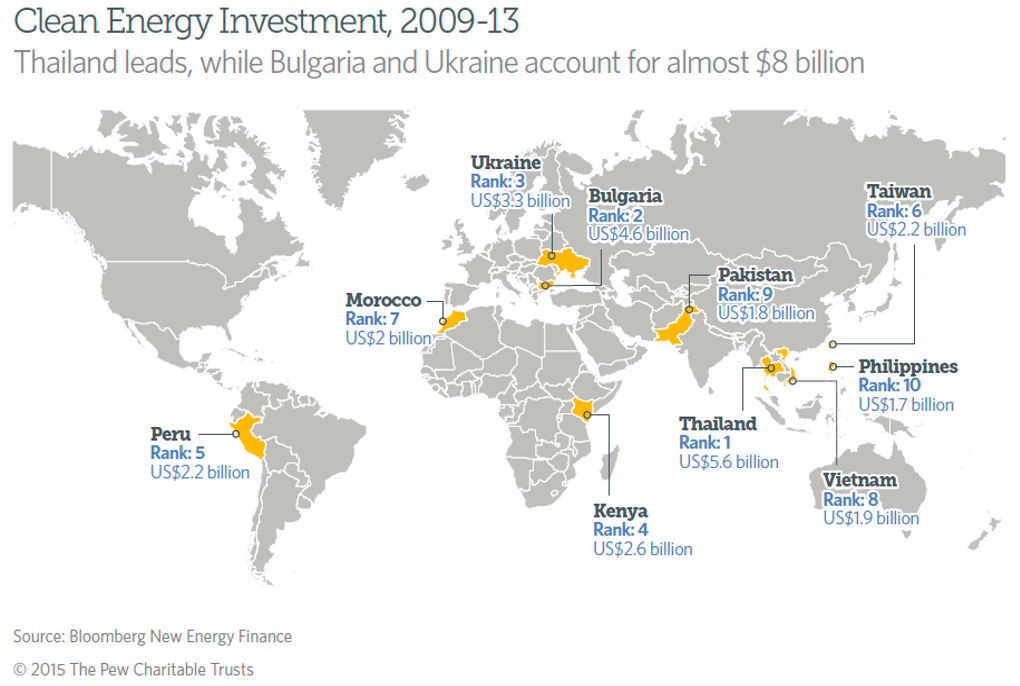Renewable energy investments growing in emerging economies
Posted by Robert McIntosh on May 20, 2015
To get to where they are today, the world’s developed nations relied heavily on fossil fuels during industrialization. The focus for most of these nations now is to move away from oil and coal and toward clean energy technologies. And although the majority of investment in renewable energy occurs in the world’s largest economies, a new report reveals that clean energy investment in developing countries is growing.
According to the report, Power Shifts—Emerging Clean Energy Markets, by The Pew Charitable Trusts, investment in electricity infrastructure is shifting from industrialized economies to developing economies and from fossil fuels toward clean energy. The report discovered that 100 emerging nations received a total of $62 billion in clean energy investment between 2009 and 2013. In fact, almost half (45 per cent) of the total five-year investment, $27.9 billion, occurred in just 10 markets, where renewable energy capacity grew 91 per cent - three times faster than any other supply option, over the five years.
It is difficult to imagine daily living without access electricity. However, many countries around the world are struggling to provide their citizens with enough access to energy to cook, turn on the lights, or even heat or cool their homes. In regions suffering from this so-called “energy poverty”, only a fraction of the population, if any at all, have access to electricity. In countries like Nigeria, for example, only 40 per cent of the population has access to electricity and most of the people who have access live in urban areas. With a population of nearly 140 million people, this means almost 84 million Nigerians do not have reliable access to the electricity we enjoy here in Canada every day.
Throughout Canada’s development, we were heavily dependent on coal and oil to supply the energy we needed to grow our industries, power our cities and build our economy. However, developing nations do not need to travel the same path. With advances in clean energy technologies and decreasing costs, emerging economies should implement renewable energy systems now to build their energy infrastructure, create jobs, increase their economic activity and promote overall growth.

Edited from original submission.
Filed under: Students on Sustainability
